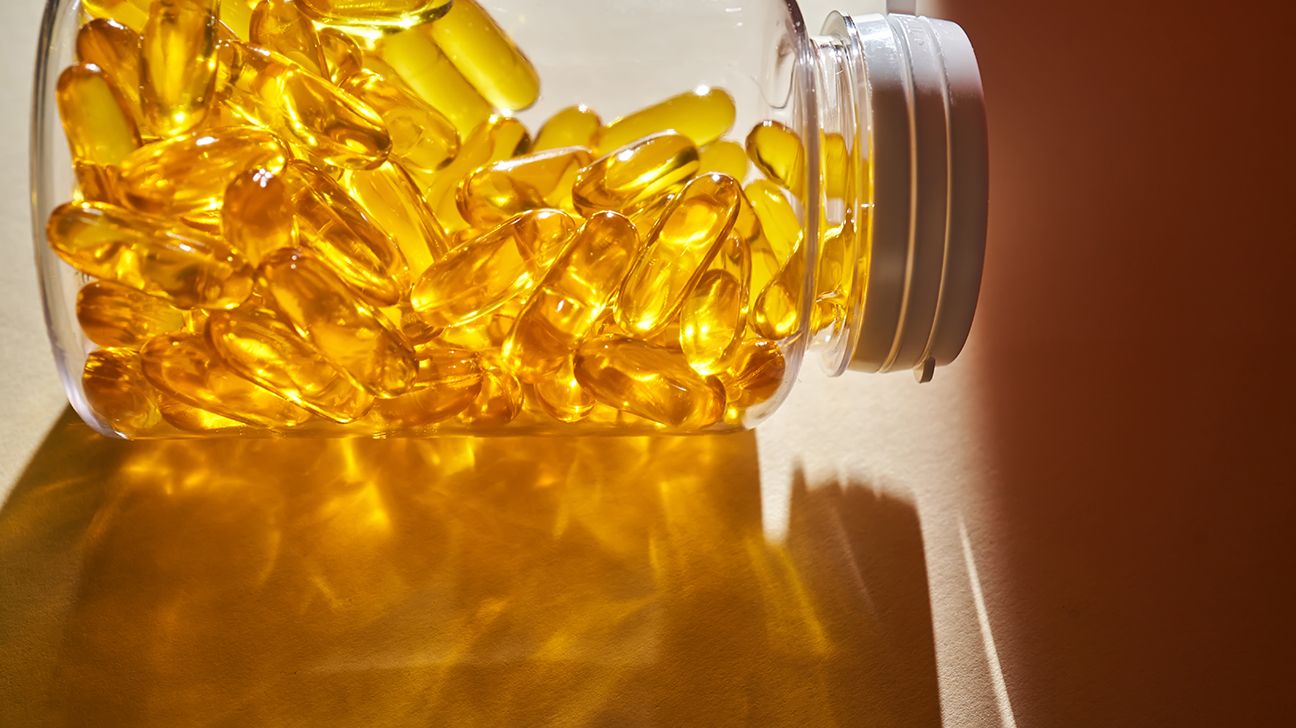
- A new study suggests that vitamin D supplementation may help preserve the lengths of the protective caps at the ends of chromosomes known as telomeres.
- Researchers say maintaining the length of telomeres may help slow some aspects of biological aging.
- Telomere length is an important component of healthy aging, but the role vitamin D can play isn’t yet certain.
A new study reports that vitamin D supplementation may help slow some of the mechanisms of biological aging.
That shortening is a natural part of aging, but it has been linked to certain age-related diseases. Among those diseases are cancer of the bladder, lungs, kidneys, and gastrointestinal systems.
“Our findings suggest that targeted vitamin D supplementation may be a promising strategy to counter a biological aging process, although further research is warranted,” said Haidong Zhu, MD, PhD, the first author of the study and a molecular geneticist at the Medical College of Georgia, Augusta University, in a statement.
Experts agree the new research is interesting, but they note it has its limits.
“Telomere length was protected with vitamin D supplementation, but it’s not clear how that translates to real life biological aging,” Marilyn Tan, MD, a clinical associate professor of medicine at Stanford University in California, told Healthline. Tan wasn’t involved in the study.
“The present study involved only a relatively small number of people, looked only at telomeres in white blood cells, and did not look extensively at the health impact of these telomere changes,” added David Cutler, MD, a family medicine physician at Providence Saint John’s Health Center in Santa Monica, California. “So, the clinical implications one can derive from this study are quite limited.” Cutler was likewise not involved in the study.
The findings were based on the results of the VITAL randomized controlled clinical trial, which was overseen by Brigham and Women’s Hospital in Boston.
The researchers sought to find out whether a daily vitamin D dosage of 2,000 individual units (IUs) and 1 gram per day of omega-3 fatty acids could minimize telomere shortening and slow biological aging.
A total of 1,054 participants were included in the sub-study, which included females 55 and older and males 50 and older. The researchers followed the participants for five years, measuring telomere length in white blood cells at baseline, year two, and year four.
The researchers reported that omega-3 fatty acids had no significant effect on telomere length.
However, they said vitamin D3 supplements significantly reduced telomere shortening and prevented the equivalent of nearly three years of aging in people who took vitamin D in comparison to people who were given a placebo.
Experts say such a slowdown in the aging process has important benefits.
“Slowing biological aging may improve life expectancy and quality of life, and it could reduce the risk of various disease states,” Tan said.
The health benefits of vitamin D have been touted over recent years.
Previous research has also indicated that a sufficient amount of vitamin D may help improve heart health.
It’s estimated that
The
Vitamin D is known as the “sunshine vitamin” because the best source for it is sunlight. Your body makes dietary vitamin D3 out of the cholesterol in the skin when it is exposed to the sun’s UV rays.
The best time to get the most of this beneficial sunlight is noon, when the sun is at its peak. However, experts say that too much sunlight can cause sunburns, eye damage, heatstroke, and skin cancer.
There aren’t a lot of foods that are sufficient sources of vitamin D, but there are a few. They are:
In addition, you can drink milk fortified with vitamin D. Some types of mushrooms as well as cheese can also be healthy sources for vitamin D.
Tan said the amount of vitamin D a person needs depends on the individual.
“The ideal amount of supplementation depends on one’s baseline vitamin D level,” she explained. “Various factors can impact vitamin D levels and metabolism, including sun exposure, time of year, geographical location, skin tone, kidney function, among other factors.”
“While sun exposure can increase vitamin D levels, excessive UV exposure has other health risks,” Tan noted. “Vitamin D can be obtained to a certain degree from the diet, but people often need additional supplemental vitamins. To know exactly how much vitamin D supplementation one needs, you should discuss with your healthcare provider.”
Cutler said people with healthy vitamin D levels probably don’t need supplementation.
“There have been many studies involving tens of thousands of people seeking to document [the] benefits of vitamin D in healthy adults with normal vitamin D levels, and no benefits have been found,” Cutler told Healthline.
“There has been no documentation of reduced cancer rates, less cardiovascular disease, increased longevity, protection from infection, or improved outcomes from COVID.”
“The best-supported strategies to preserve telomere length are exercise, diet, stress management, adequate sleep, and avoiding harmful substances like tobacco and alcohol,” he added. “These lifestyle changes don’t just preserve telomeres — they also broadly support healthy aging.”


